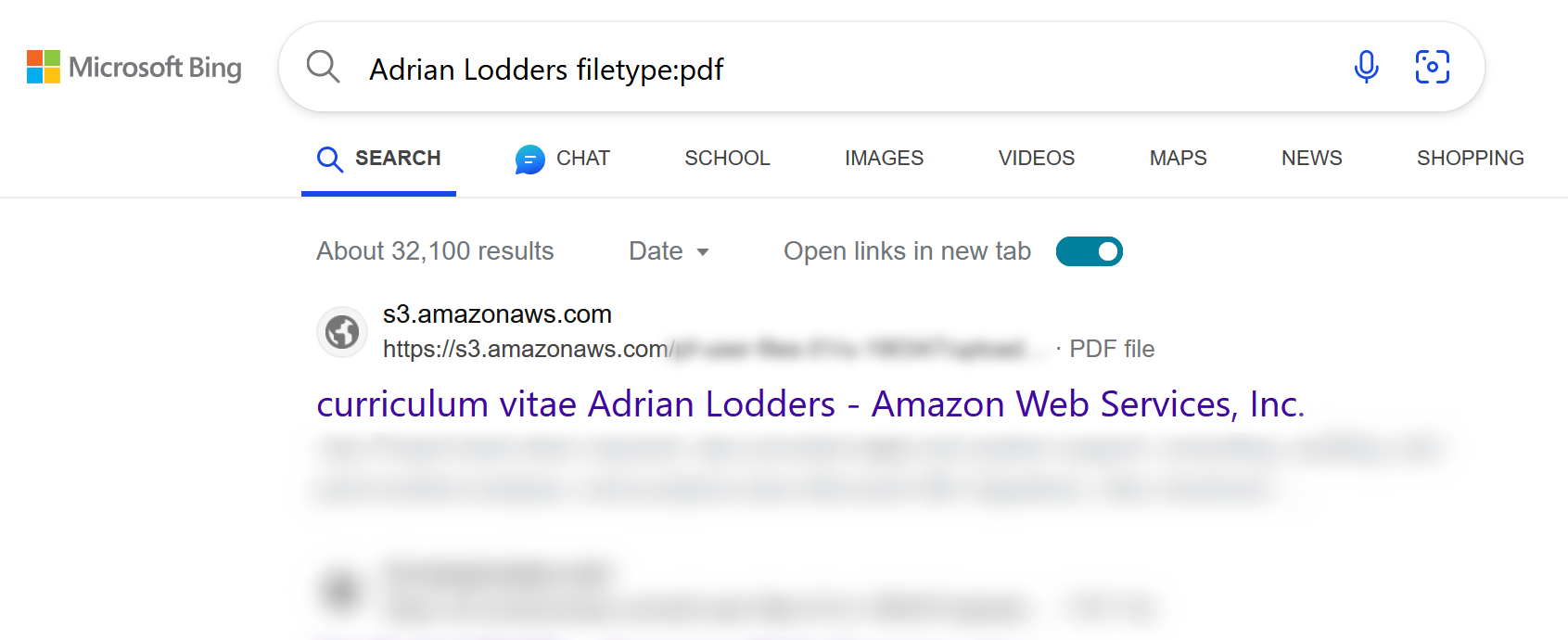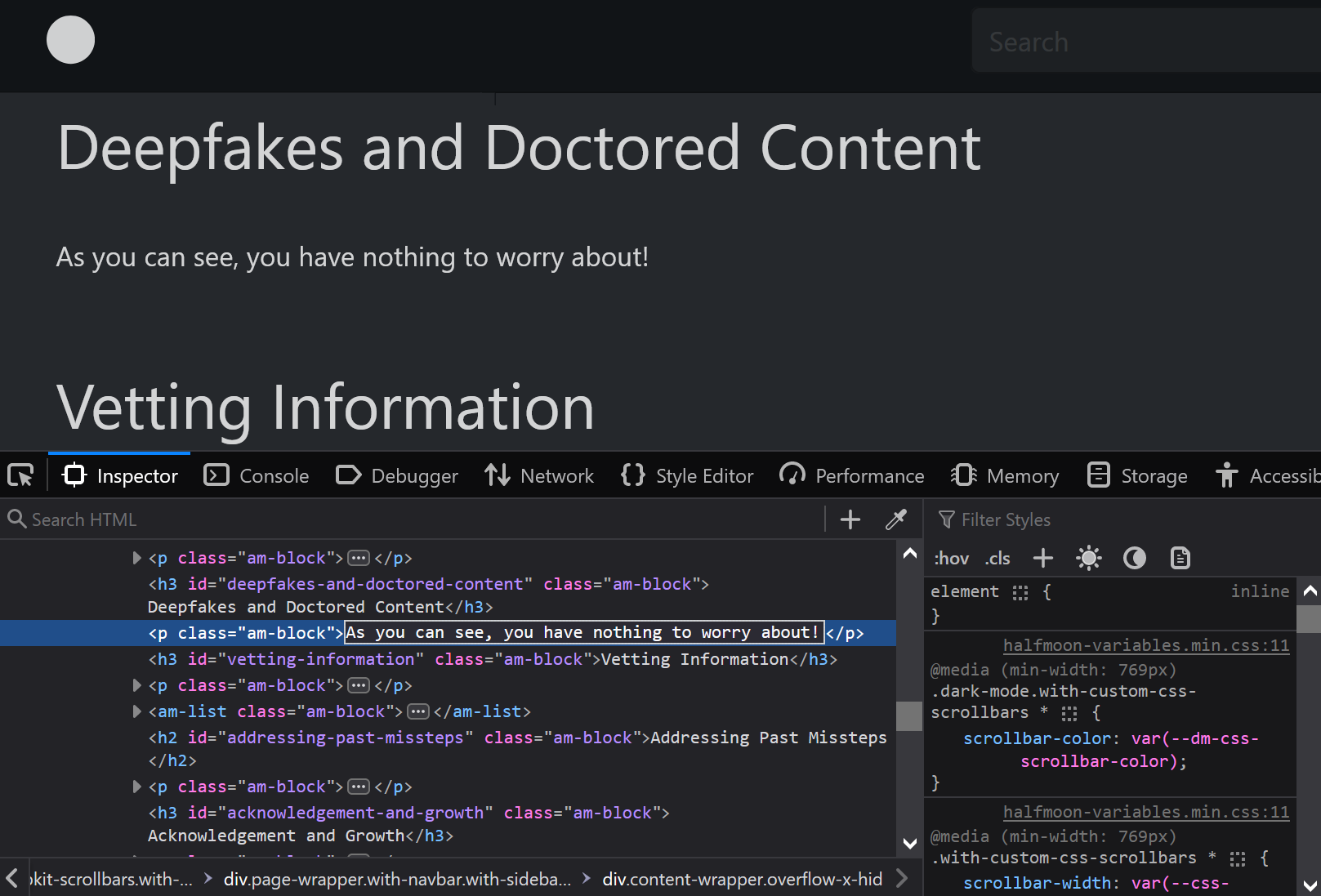Social Media Hygiene and Online Reputation Management
Friday, August 11th 2023 — Crisis Management, OSINT, Reputation Management, Social Media
Introduction
Any individual seeking public office, or working within senior realms of the public policy environment, needs to maintain a high standard of social media hygiene in the current day and age. It is not uncommon for detractors or opponents to research publicly accessible resources, including social media, newspapers, and legal and court databases to perform open-source intelligence (OSINT) on a person of interest.
As soon as one contemplates running for office or joining the ranks of a campaign, or elsewhere within the realms of public policy, it becomes crucial to initiate the process of refining one's online footprint and becoming acutely aware of any information that could cast a shadow over their candidacy, the campaign, or position.
The groundwork for this should be laid well before any public declaration of candidacy or involvement. This article explores the measures one should undertake to sanitise their online presence. Moreover, it offers insights into formulating strategies to address past missteps or instances where past language or framing may clash with current sensibilities. Furthermore, readers will gain understanding on the nuances of reputation monitoring, personal information leakage, and the rising concerns associated with disinformation — notably, the threats posed by fake accounts and manipulated content.
Initial Clean-up
Search through your old and neglected social media accounts. Use search engines to look for your old email addresses associated with accounts, old user names, gamer handles, etc.
Once you have a list, go through your old accounts and delete them.
If you have accounts you wish to keep, take time to audit those accounts and delete unwanted tags, photos, comments, posts, and connections that may cast you in a negative light.
It's also worth remembering that on many social media platforms, you cannot easily identify content to untag yourself from, or remove comments and photos that others have tagged you in, or locating inadvertently "liked" posts that would be in conflict with your own values, or the values that you now stand for. Also consider that as the Overton Window has shifted over time, commentary from discourse from 10 years ago may no longer be considered palatable, and may even be considered offensive.
This can be time consuming and not always practical.
For example, whilst Twitter (now known as X.com since 2023), can use third-party apps to quickly delete your past history and messages, services like Facebook lack such functionality.
In cases such as Facebook, for example, it would be wiser to download a backup copy of your personal profile (such as photos and videos), and make a list of your primary friends and blocked connections, and delete the old account. Then, create a new account, inviting your friends to reconnect with you, and putting your existing block list back in place.
By doing this, all content associated with your previous account will be removed, and be no longer searchable. Given that some users have Facebook profiles dating back to its inception in 2004, with videos, photos, comments, tags, connections, and likes that are no longer relevant to their present selves, it is far easier to start afresh.
Lockdown security and privacy settings.
Leaving your social media profiles ‘public’ means anyone who is interested in you can view your comments, posts, videos, and photos - whether you want them to or not. By locking down your profile, you reduce who can see your content, comments, and who can tag you.
For candidates using Facebook, it's best to direct interested individuals to your public page and not your personal profile. If people ask why, there is nothing wrong with saying it's limited to close friends and family. However, if a candidate chooses to allow constituents or supporters to connect to their personal page, it remains crucial to limit the exposure of sensitive personal information and to be mindful of their communication style and interaction on the platform.
Going Forward: Think before you post.
Think twice about each post you make — from the potential negative impact of a joke or image, to unintentionally revealing personal details, such as your home, family, or current holiday destination.
Pausing to consider the possible implications before sharing online can help prevent future regrets or unnecessary attention.
Proactive Monitoring
It's advisable to leverage services like Google Alerts to monitor mentions of your name online actively. Beyond just your name, consider setting up alerts for other personal details that could surface online, including:
- Personal phone numbers for you and immediate family members.
- Home addresses.
- Private email addresses.
- Names of family members.
By doing so, you can stay informed about any potentially unwarranted exposure and take timely action if necessary.
Periodic Manual Searches
It's a good practice to periodically check your personal information across multiple indexing search engines to ensure a comprehensive understanding of your online exposure. Search engines can be broadly categorised based on how they obtain their search results. Some search engines actively crawl and index the internet themselves, collecting and organising vast amounts of data. Bing and Yahoo! are examples of these 'indexing search engines', and because they independently gather information, they might have different results from one another.
On the other hand, some search engines do not index the web directly. Instead, they license or buy access to search results from the larger indexing search engines. For instance, DuckDuckGo, AOL search, and Lycos rely on Bing's results.
As illustrated, Bing inadvertently indexed a curriculum vitae related to the author. Since it wasn't indexed by Google, no alert was triggered. Had the author not conducted a manual search on Bing, their personal information related to their work history, contact details, and the details of referees would have remained exposed online.

Fake Accounts, Deepfakes, and Doctored Content
Navigating the complexities of fake and doctored content can be challenging, and while a detailed exploration is beyond the scope of this article, a few key points merit mention:
Fake Accounts
Be vigilant about accounts created impersonating you or your campaign. Report suspicious profiles to the respective social media platforms promptly.
Deepfakes and Doctored Content
With advancements in AI technology, photo editing software, and web developer tools, it's easier than ever to manipulate digital content in deceptive ways. This can range from altered photos to videos where someone's likeness is used to convey words they never spoke, or editing the content of webpages.

Vetting Information
When presented with potentially damaging content, especially if its origin or authenticity is suspect, request concrete evidence to substantiate the claims. For instance, if a screenshot of a social media post is put forth as proof:
- Ask for the direct URL of the post.
- Check if the content is archived on third-party sites like the Internet Archive's Wayback Machine.
- Examine date and time stamps in desktop screenshots. They can sometimes give clues about the content's authenticity.
- Be wary of cropped, oddly framed, or resized images; they might be hiding crucial contextual information.
Addressing Past Missteps
It's a reality of the digital age: our pasts, both commendable and regrettable, are often just a few clicks away. As someone eyeing public office or a prominent position within a campaign or office, how can you navigate the inevitable scrutiny of past mistakes?
Acknowledgement and Growth
Every individual has moments they wish they could erase or words they wish they could take back. It's human to err. However, it's also human to grow and learn from those errors. Rather than attempting to bury or deny past mistakes, consider embracing a narrative of personal growth. Take a leaf from various public figures who have faced their past head-on, acknowledging their missteps and detailing the lessons they learned.
Whoever hasn’t sinned should throw the first stone.
For instance, in the second chapter of "Righteous Indignation: Excuse Me While I Save the World", the late conservative commentator Andrew Breitbart provides a compelling example. He openly acknowledges his own failings and details the lessons he learned from them. While readers may not always align with Breitbart's political beliefs, his candid reflection on personal growth is a noteworthy illustration of addressing past missteps.
Similarly, political scientist Richard Hanania's 2023 article, "My Journey Out of Extremism", outlines his ideological transition to classical liberalism and offers a frank admission of past behaviours and mistakes. However, for Hanania — as with any public figure — maintaining consistency with his newly articulated position is crucial for his long-term credibility.
Strategy and Transparency
It's crucial to be prepared. If there are moments or comments from your past that could be deemed problematic, strategise on how best to address them. It could be through a public statement, a heartfelt interview, or a community engagement event. The key is to be transparent and sincere.
Remember, consistency isn't just important – it's critical. If you claim an incident was a one-time event, ensure that this is truthful. Contradicting evidence can be devastating to your credibility.
Watch for Political Play
In the world of politics, the lines between genuine concerns and political manoeuvring can often blur. Sometimes, opponents might emphasise certain aspects of your past not out of genuine concern, but to gain a strategic advantage.
Make the enemy live up to its own book of rules.
Be discerning about such tactics. While it's essential to be accountable, it's equally crucial to recognise and address bad-faith critiques.
The Evolving Standard
Society's values and norms evolve. What was considered acceptable a decade ago might be frowned upon today. The shifting Overton Window suggests that some past statements or actions might be viewed differently in today's context. When addressing these, it's vital to show an understanding of the current socio-cultural climate and express genuine empathy where necessary.
In Closing
While holding oneself to the highest standards is commendable, it's essential to approach one's past with understanding, bearing in mind the context of the times. Being genuine, strategic, and transparent can transform past mistakes into testimonies of growth and resilience, and demonstrate to the constituency what true leadership really means.